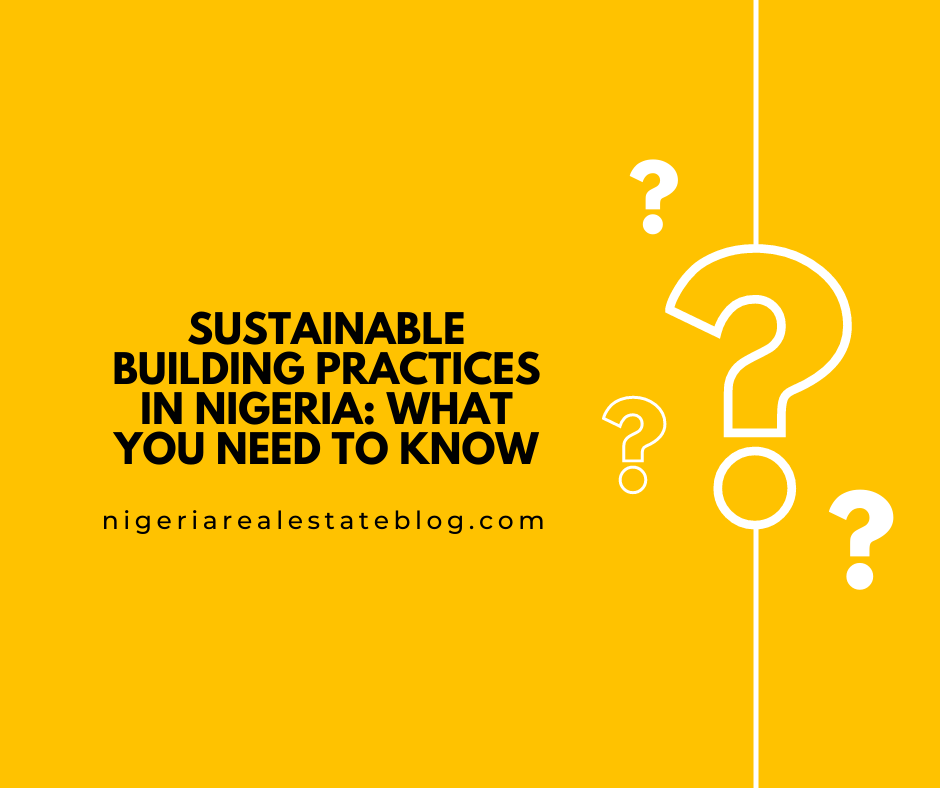
Sustainable Building Practices in Nigeria: What You Need to Know
Sustainable building practices are becoming increasingly important in Nigeria, as the country seeks to address environmental challenges and improve the quality of life for its citizens. In this article, we’ll explore the key aspects of sustainable building practices in Nigeria and what you need to know as a real estate investor.
- Use of Sustainable Materials
Using sustainable materials in construction is an important aspect of sustainable building practices. This involves using materials that are eco-friendly, such as locally sourced timber, bamboo, and recycled materials. Sustainable materials not only reduce the environmental impact of construction but also help to create healthier living environments.
- Energy Efficiency
Energy efficiency is another key aspect of sustainable building practices. This involves designing buildings that reduce energy consumption and promote the use of renewable energy sources such as solar panels and wind turbines. Energy-efficient buildings not only help to reduce carbon emissions but also reduce energy costs for occupants.
- Water Conservation
Water conservation is an important consideration in sustainable building practices, especially in Nigeria where water scarcity is a major challenge. This involves implementing water-efficient technologies such as low-flow toilets, faucets, and showerheads, and rainwater harvesting systems. Water conservation measures not only help to reduce water consumption but also promote sustainable living.
- Waste Management
Proper waste management is an important aspect of sustainable building practices. This involves reducing waste generation through the use of sustainable materials and practices, as well as implementing recycling and composting programs. Effective waste management helps to reduce the environmental impact of construction and promote sustainable living.
- Green Spaces
Incorporating green spaces in building design is an important aspect of sustainable building practices. This involves designing buildings with open spaces such as parks, gardens, and green roofs, which help to improve air quality, reduce urban heat island effects, and promote biodiversity.
In conclusion, sustainable building practices are crucial in Nigeria’s efforts to address environmental challenges and promote sustainable living. As a real estate investor, incorporating sustainable building practices in your projects not only helps to promote environmental sustainability but also enhances the value and desirability of your properties. By implementing sustainable building practices such as the use of sustainable materials, energy efficiency, water conservation, waste management, and green spaces, you can contribute to a more sustainable future for Nigeria.


